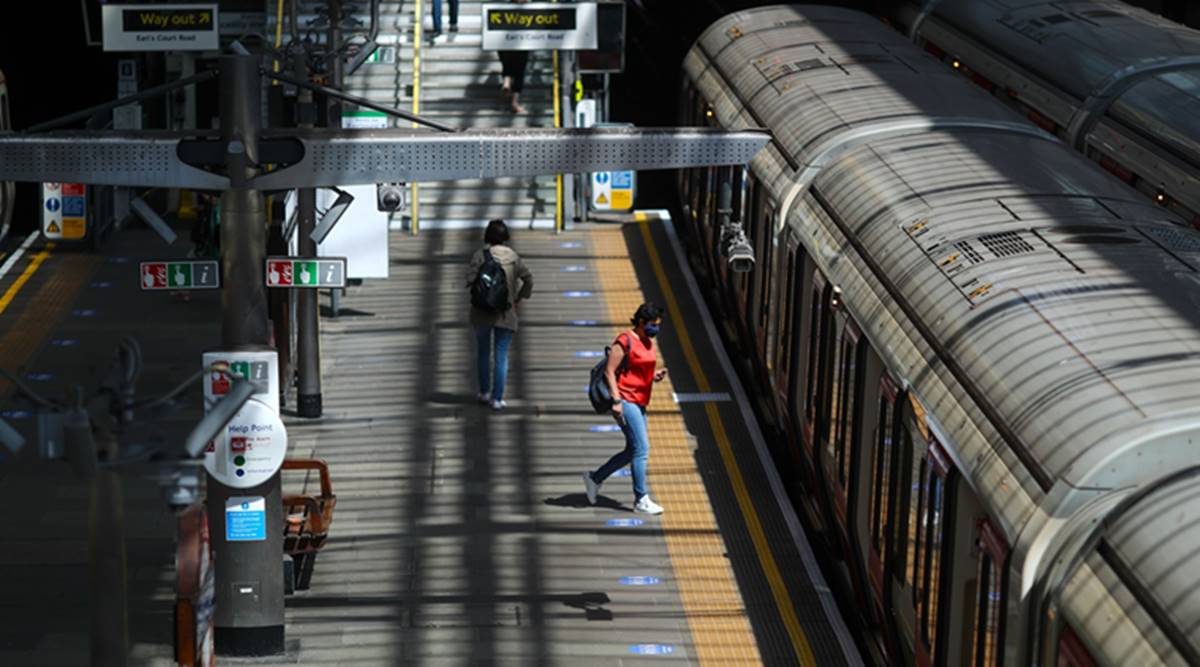 The ONS has also partnered with Scotland, Wales and Northern Ireland to extend the survey across the devolved parts of the UK making it the country's largest COVID-19 surveillance survey, the DHSC said.
The ONS has also partnered with Scotland, Wales and Northern Ireland to extend the survey across the devolved parts of the UK making it the country's largest COVID-19 surveillance survey, the DHSC said.The UK government on Wednesday announced a significant expansion of its coronavirus testing programme with the Office for National Statistics (ONS) planning to test 1,50,000 people every fortnight by October from the current 28,000 tests in that period.
The “ONS COVID-19 Infection Survey” will focus on random samples of tests from the general population across England, over and above a separate mass testing programme already underway for those showing symptoms of COVID-19. The Department of Health and Social Care (DHSC) said the aim of the additional tests — with or without symptoms — was to better understand the spread of the deadly virus and to clamp down on localised flare-ups.
“We are developing the capacity to test for coronavirus on an unprecedented scale and undertaking one of the biggest expansions of surveillance testing we have ever seen. This ONS survey will be a crucial part of this work — improving our understanding of the rate of infection in the population and how many people have antibodies,” said UK Health Secretary Matt Hancock.

“This will allow us to further narrow down the areas potentially affected by local outbreaks and continue our fight to curb the spread ahead of winter. I urge anyone who is able to take part in this study to do so you will be playing a vital role in the fight against the virus. The data and insight gathered will help inform our national, regional and local responses to the pandemic, allowing this nation to get back to the things we love doing,” he said.
Led by the ONS and the University of Oxford in partnership with the health departments across the UK, the survey will use routine swabbing and antibody testing to provide insight into the rate of infection and antibody levels in the community. The survey, tracking the virus in the general population, aims to increase to 400,000 people across the entire project in England.
The ONS has also partnered with Scotland, Wales and Northern Ireland to extend the survey across the devolved parts of the UK making it the country’s largest COVID-19 surveillance survey, the DHSC said. The survey will prioritise ramping up of testing in the north west of England, the region currently seeing a high infection rate.
As part of the study, participants will provide samples taken from self-administered nose and throat swabs and answer a few short questions during a home visit by a trained health worker. The swab tests will show whether or not participants currently have the virus and they will be asked to take further tests every week for the first five weeks, then every month for 12 months.
The aim is to establish the prevalence of symptomatic and asymptomatic COVID-19 infection in the community, how this varies over time and how this varies by population broken down by age, ethnicity and geography. The DHSC said that letters have already been sent out to “tens of thousands” of homes inviting new participants to take part in the survey and while it is not compulsory, anyone who receives a letter is encouraged to participate.
“Vigilance is key to containing this pandemic and the extra data on the spread of infections and antibodies at local level will be invaluable to the planning of effective local responses,” said Professor Sir Ian Diamond, UK National Statistician.
“Following this expansion, the ONS-led COVID-19 Infection Survey will be the biggest of its kind in this country. If you’ve been approached to take part then please do so. You will be helping us all to contain this terrible virus and get on with our lives,” he said.
Reporting on a weekly basis, the ONS study will provide both a national picture of how the virus is spreading as well as granular estimates of the number of COVID-19 cases down to local level. Crucially, the DHSC said, this will allow government and local authorities to further narrow down the areas which may be undergoing outbreaks, potentially reducing the number of people affected by new restrictions and allowing for swift action to curb the spread of the virus.
Alongside the testing expansion, the government said it is also providing a GBP 2 million grant to the ZOE COVID-19 Symptom Study application to support its data collection.
Participants use the application to regularly report on their health and symptoms and whether they have tested positive for the virus or not, making it one of the largest public science projects of its kind in the world. Anonymised data from the app will be analysed in collaboration with King’s College London researchers to help track infections across the UK as well as identify who is most at risk and where high-risk areas are.
Granular information about symptoms across the country and identified local outbreaks will be provided regularly to the government to support decision making.